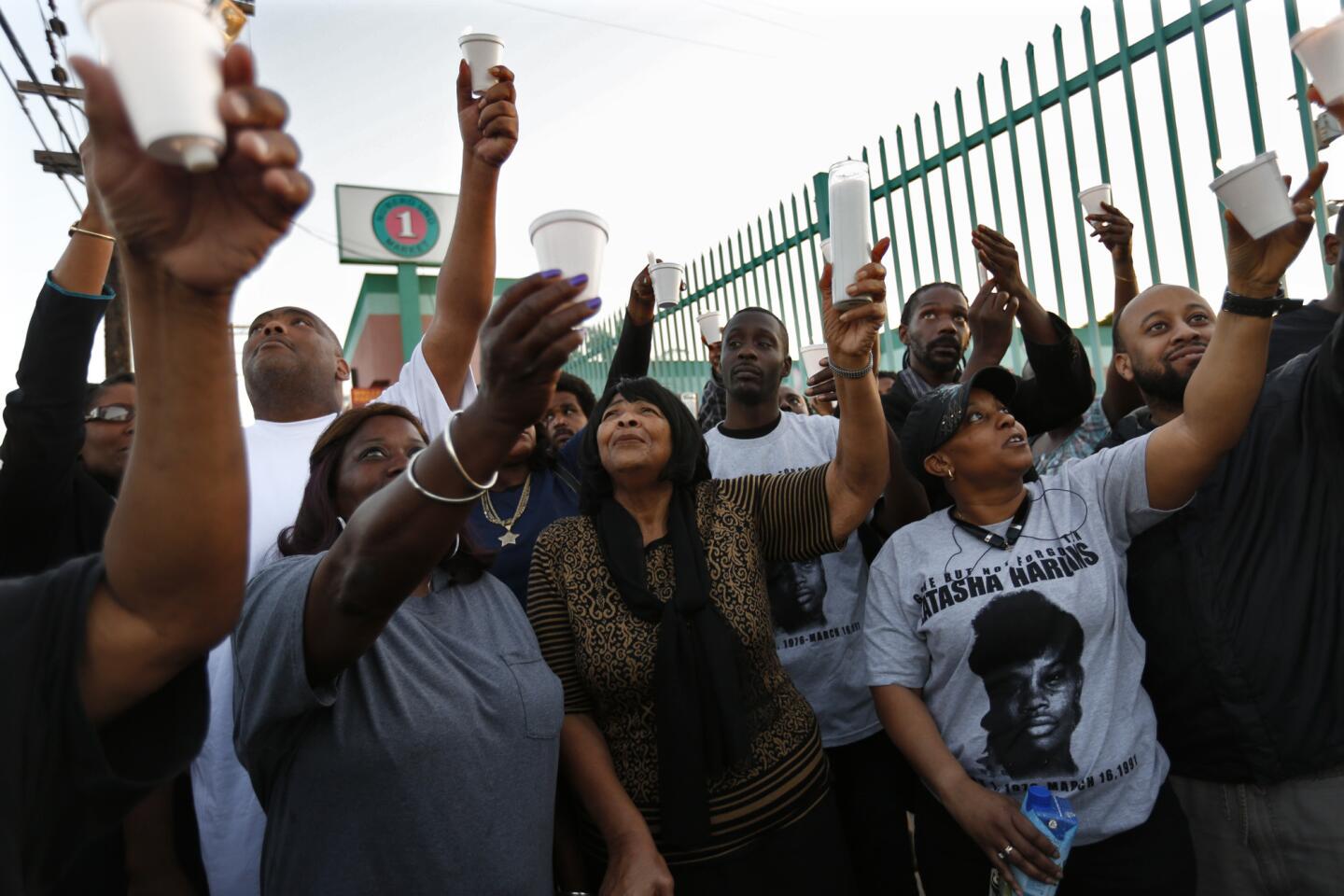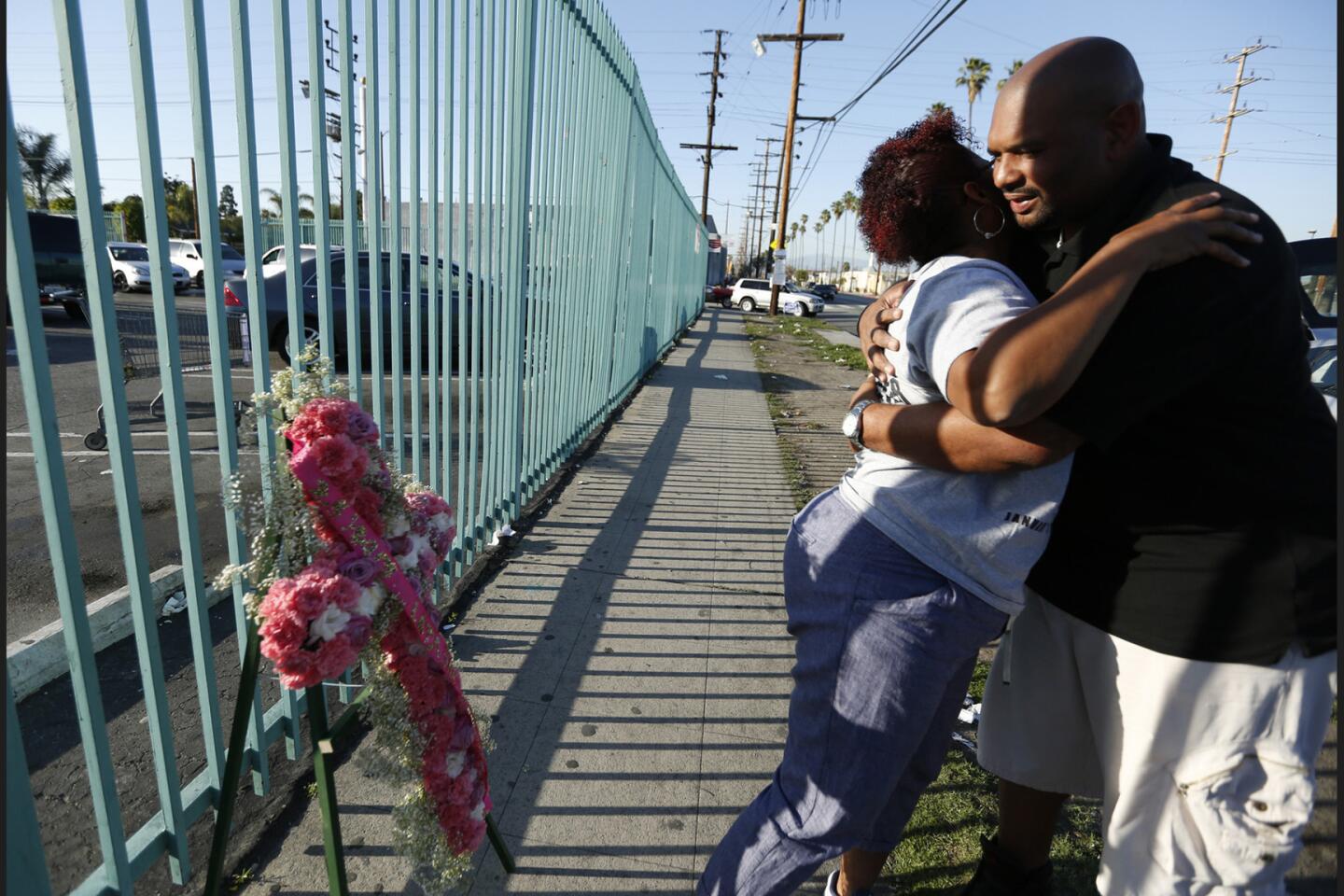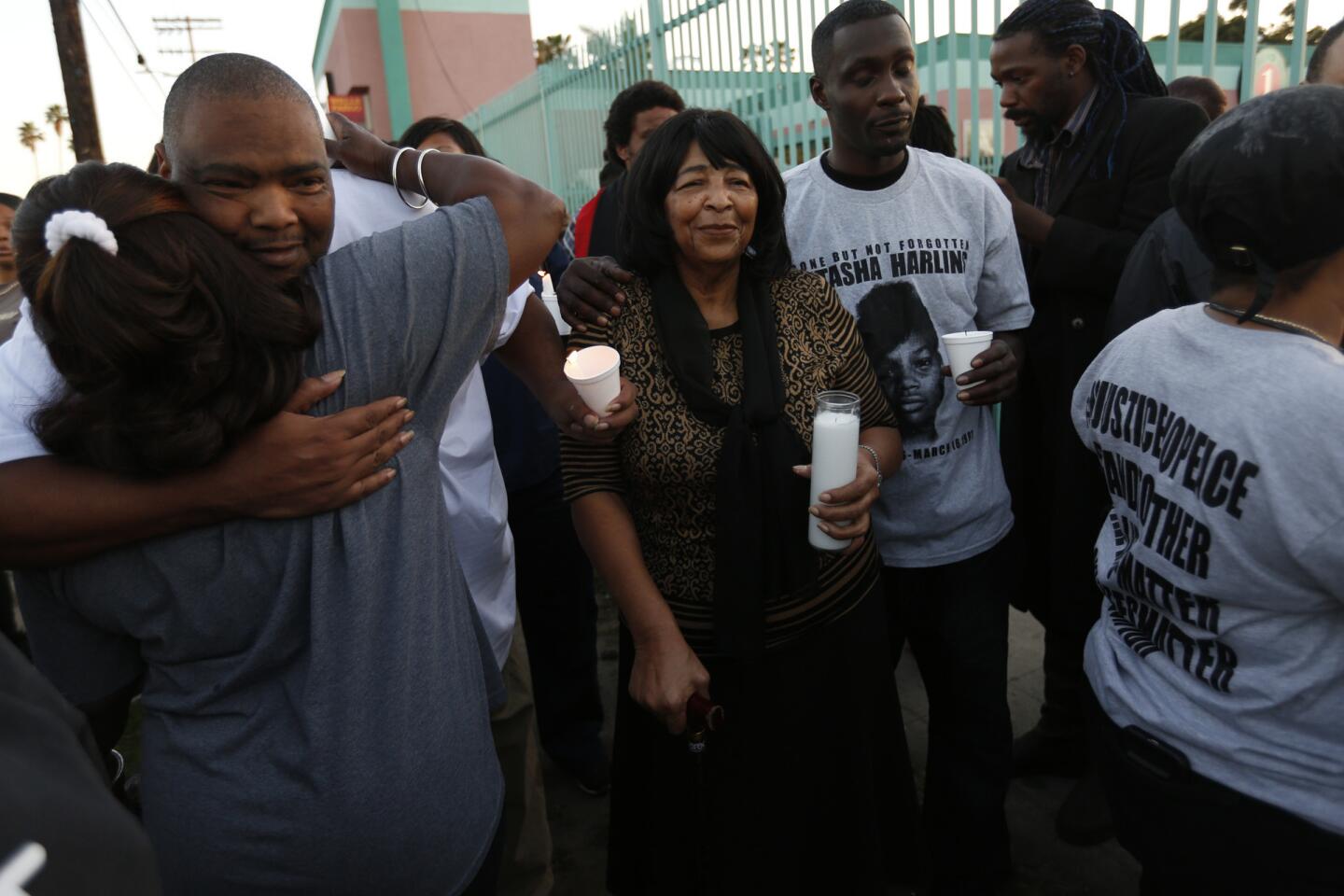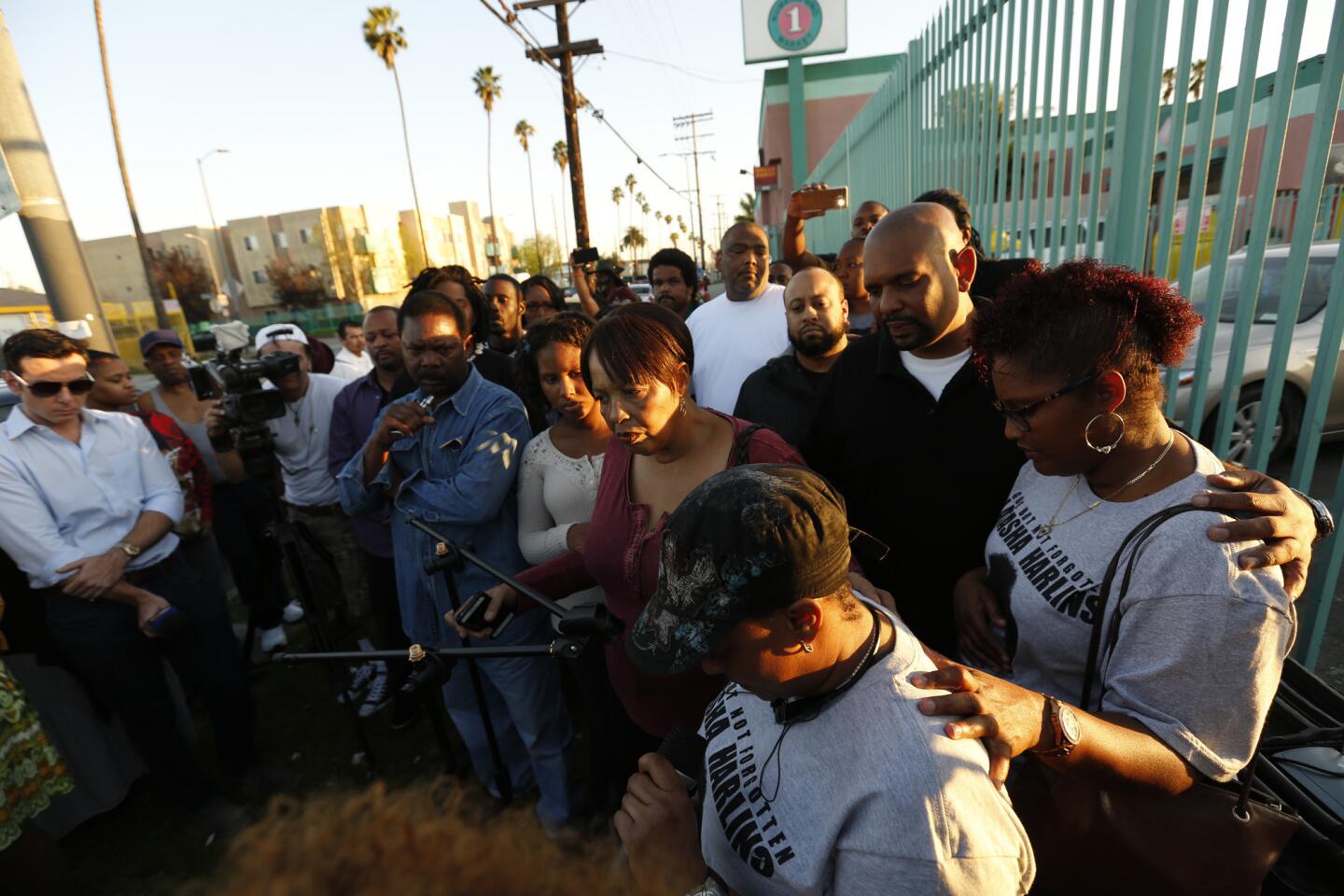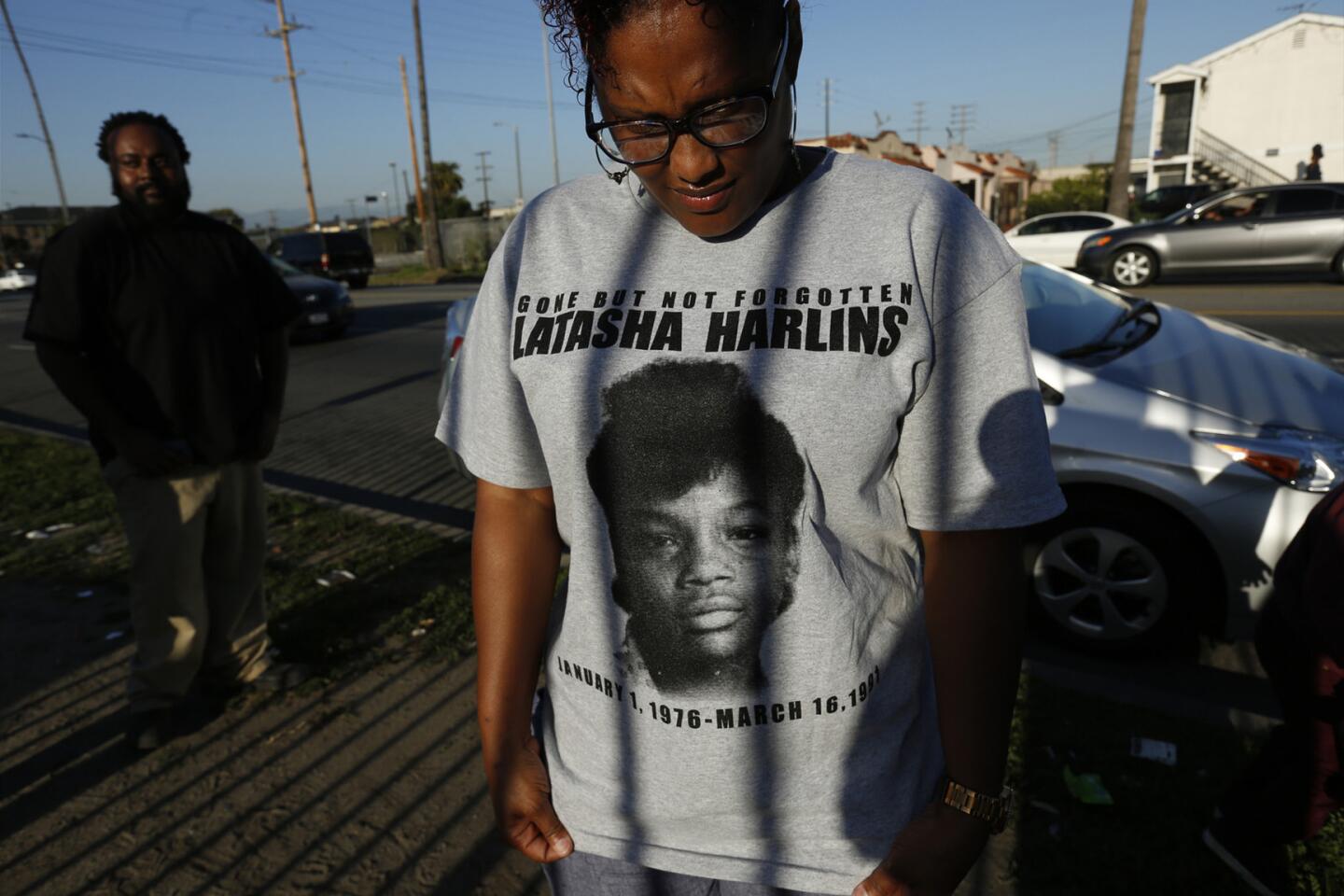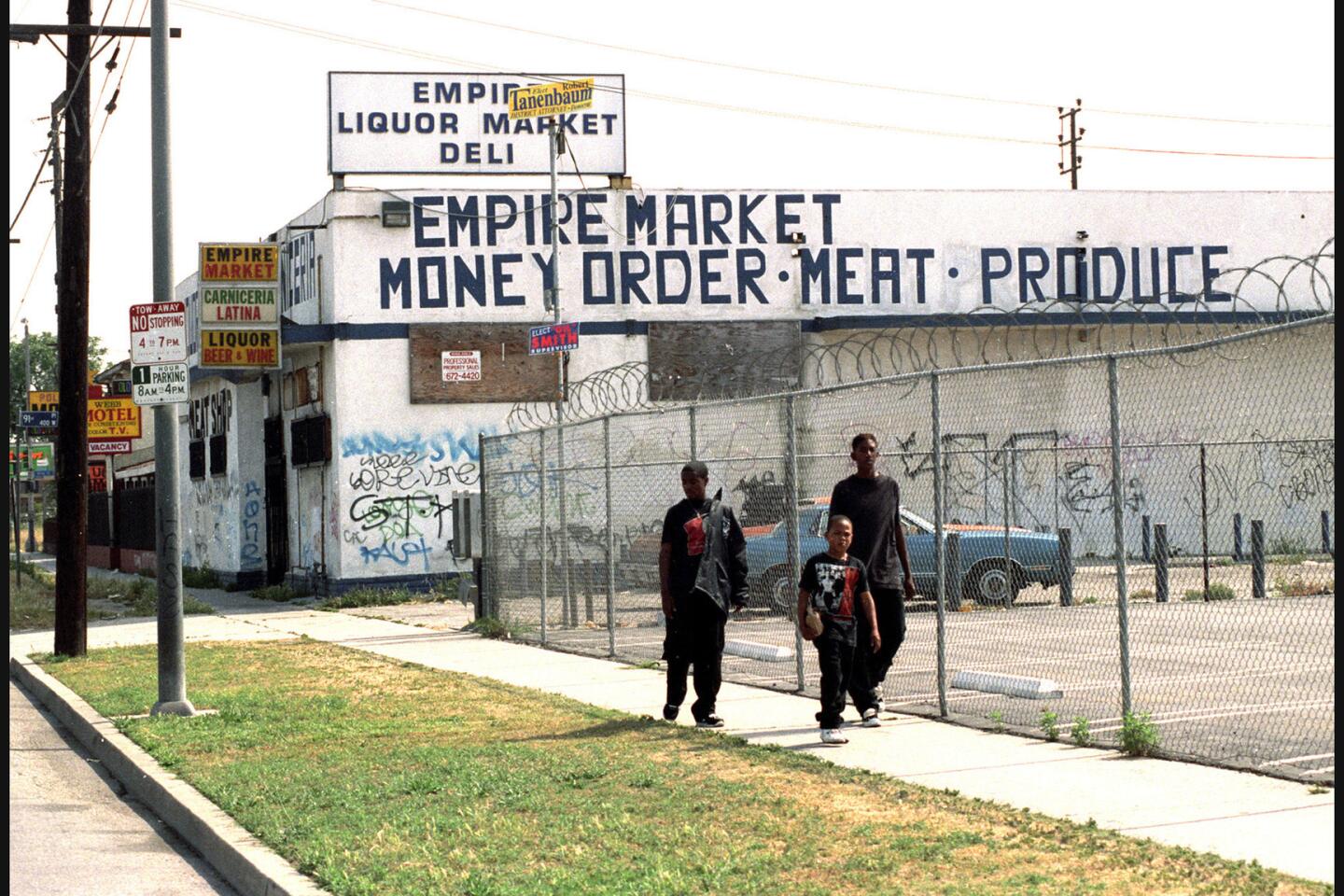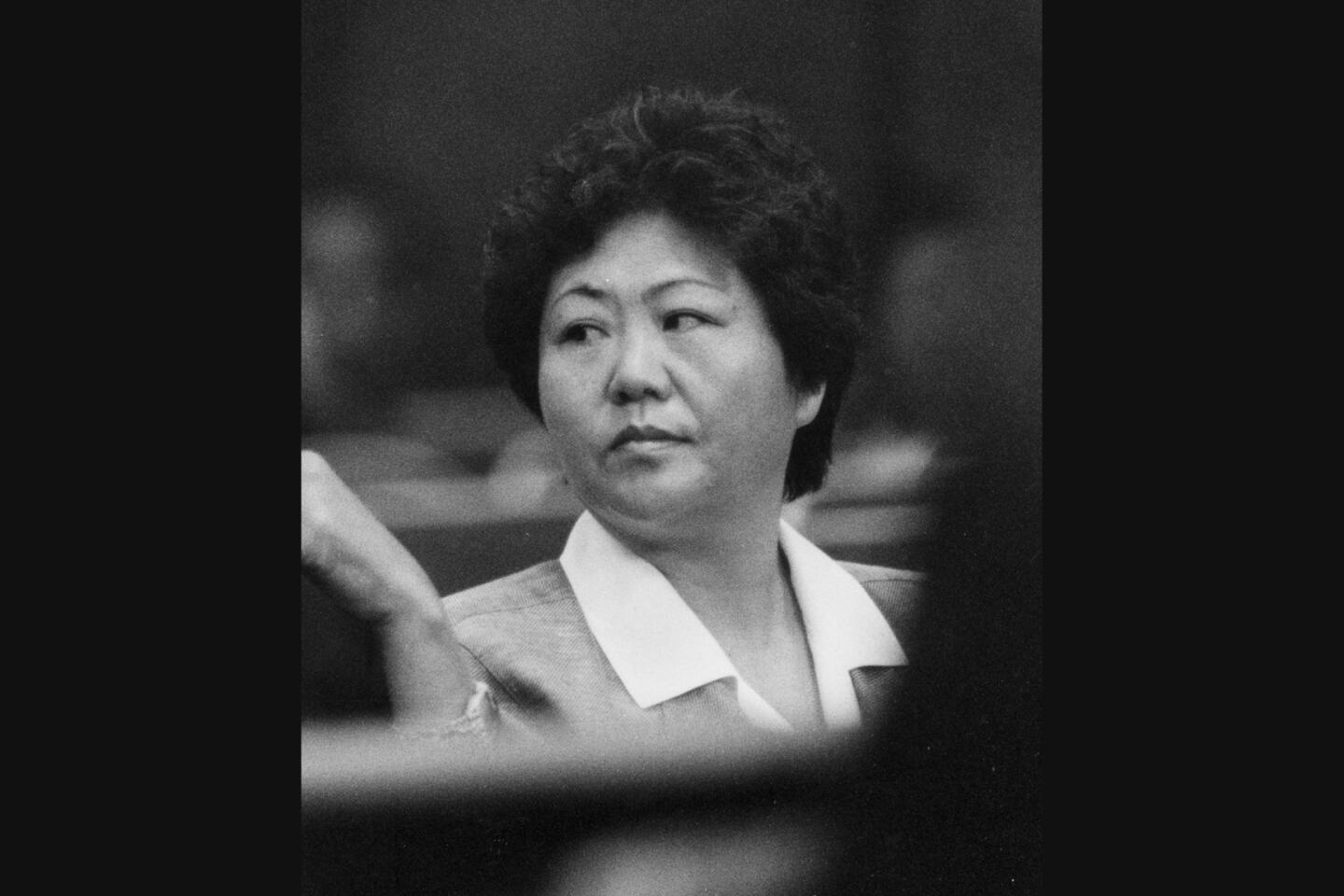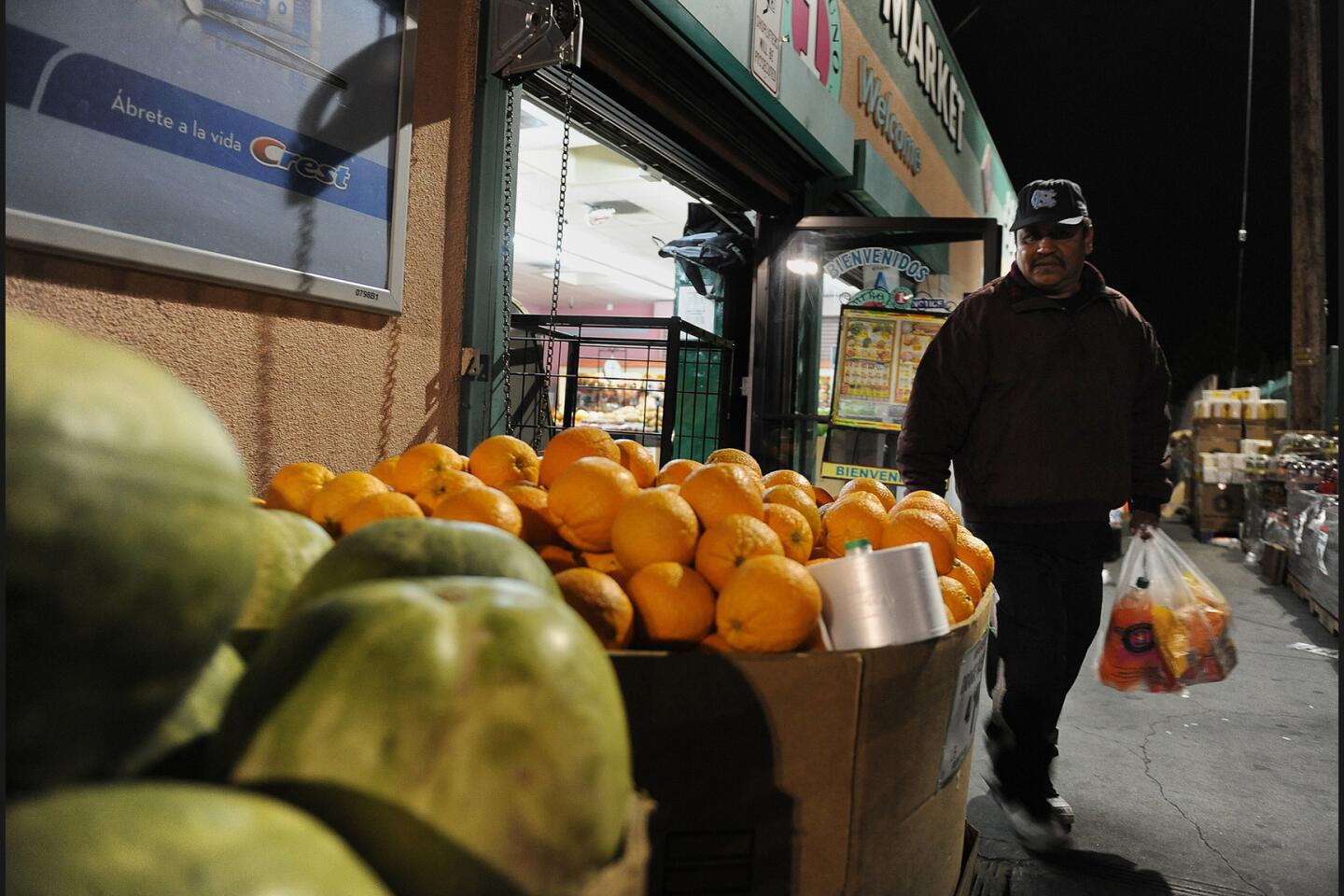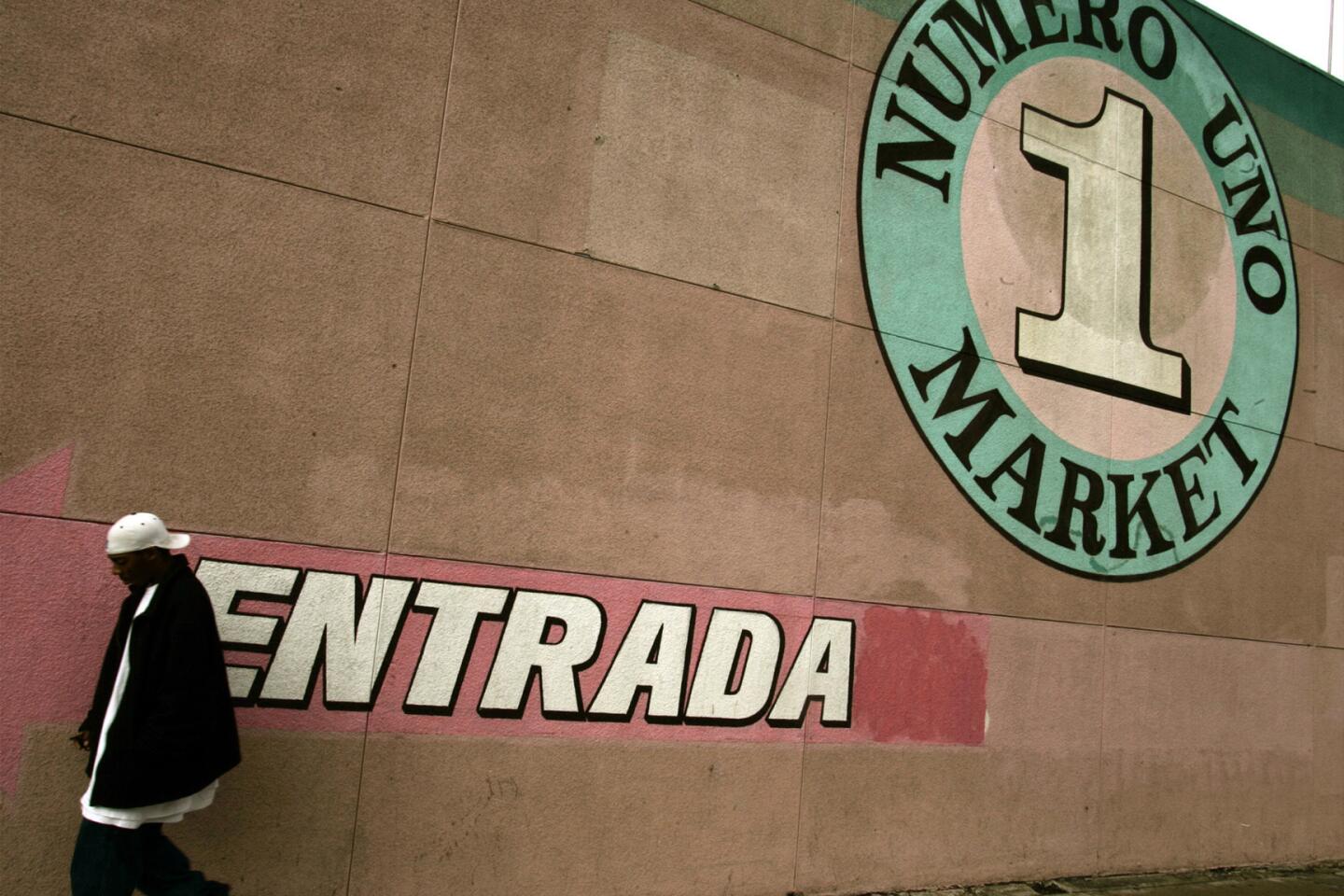25 years later, vigil marks Latasha Harlins’ death, which fed anger during Rodney King riots

Pastor Issac Reed prays with relatives of Latasha Harlins and community members who gathered on the 25th anniversary of the teenager’s shooting death. The vigil was held outside the former store where Korean-born shopkeeper Soon Ja Du shot Latasha,
- Share via
Two weeks after the beating of Rodney King, a Korean-born shopkeeper shot a 15-year-old black girl named Latasha Harlins in the back of her head in a dispute over a bottle of orange juice.
Unlike King, the teen did not live to tell about it.
The two racially charged incidents sparked outrage in Los Angeles that eventually boiled over into the 1992 L.A. riots. Some rioters invoked the teenager’s name as they torched buildings in South L.A.
On Wednesday, the 25th anniversary of Latasha’s death, her family and community activists gathered at the site where she was slain, holding candles and sharing memories of her brief life.
Her aunt, Denise Harlins, reminded the crowd that if she were alive, Latasha would have turned 40 this year. Perhaps, she said, Latasha would have realized her dream of becoming an attorney.
“She represents so many that are not here that would have been something to somebody,” Harlins said.
During a much more violent era in L.A.’s history, Latasha’s death highlighted the tension between African Americans and Korean Americans, particularly business owners.
On March 16, 1991, Latasha walked to Empire Liquor Market and Deli on 91st and Figueroa streets, put a bottle of orange juice in her knapsack, then went to the counter. Soon Ja Du, the store owner, accused the girl of trying to steal the juice.
Witnesses said Latasha told Du she intended to pay and revealed two dollar bills in her hand; police later concluded that there was “no attempt at shoplifting” by Latasha.
But Du grabbed the teen’s sweater and as the two struggled, Latasha broke free after striking Du in the face, knocking her down. Latasha tossed the juice on the counter and walked to the door. Du picked up a .38-caliber handgun and fired a shot into the back of Latasha’s head, killing her.
The deadly confrontation was captured by fuzzy security footage.
A jury found Du guilty of voluntary manslaughter, with a maximum sentence of 16 years in prison. The judge gave her probation, 400 hours of community service and a $500 fine.
Latasha’s family launched a years-long battle to overturn the sentence and recall the judge. Both efforts were unsuccessful.
In the generation since the girl’s death, she has been memorialized in songs by rappers Tupac Shakur and Ice Cube, and most recently, New York-based singer Gabriel Kahane.
That widespread commemoration has not eased the pain. At the vigil on Wednesday evening, David Bryant, an activist who helped found the Latasha Harlins Justice Committee with Denise Harlins, said the family is still trying to heal.
Outside the shop where Latasha died, now a Numero Uno grocery store, a pack of white balloons was released into the sky as night fell. Dozens of people lifted their candles upward, and the group waved, exclaiming, “We love you.”
Twitter: @AngelJennings
ALSO
Scientology leader’s father to publish ‘Ruthless’ memoir
Teen is accused of torturing and raping victim who was found bound in her home
Bizarre sequence precedes shooting death of unarmed man by L.A. County sheriff’s deputies
More to Read
Sign up for Essential California
The most important California stories and recommendations in your inbox every morning.
You may occasionally receive promotional content from the Los Angeles Times.
